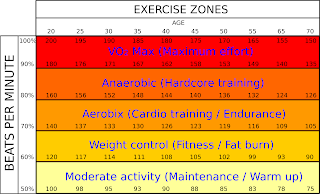Gluten-free diets for nonceliac athletes
Gluten-free products and diets have been a hot topics for quite some time now. In the fitness communities many athletes follow gluten-free diets, despite not suffering from celiac disease or other gluten related disorders. However, new research suggest that this may not have the benefits on the performance as first perceived.
The Celiac Disease Foundation (2016) explains that "gluten is a general name for the proteins found in wheat (durum, emmer, spelt, farina, farro, KAMUT® khorasan wheat and einkorn), rye, barley and triticale. Gluten helps foods maintain their shape, acting as a glue that holds food together."
In a study
Lis et al (2015) found that there were no beneficial effects of a
gluten-free diet for athletes who did not have a clinical reason to be gluten free. They did a study on 1000 athletes in Australia, where they found that 41% were on a gluten-free diet despite the fact that only 13% had
It's important to find a diet that works for you, and maybe if you don't suffer from a gluten-related disease, then having gluten in your diet isn't such a bad idea.
References:
1. Celiac Disease Foundation https://celiac.org/live-gluten-free/glutenfreediet/what-is-gluten/
2. Lis,
D., Stellingwerff T., Kitic CM, Ahuja KD, Fell J.; Exploring the Popularity,
Experiences, and Beliefs Surrounding Gluten-Free Diets in Nonceliac Athletes, International
Journal of Sport Nutrition and Exercise Metabolism, 2015, 25
3. Rosenbloom,
B., Popular Diets and Athletes, Sports Nutrition, 2014, 49/5



Comments
Post a Comment